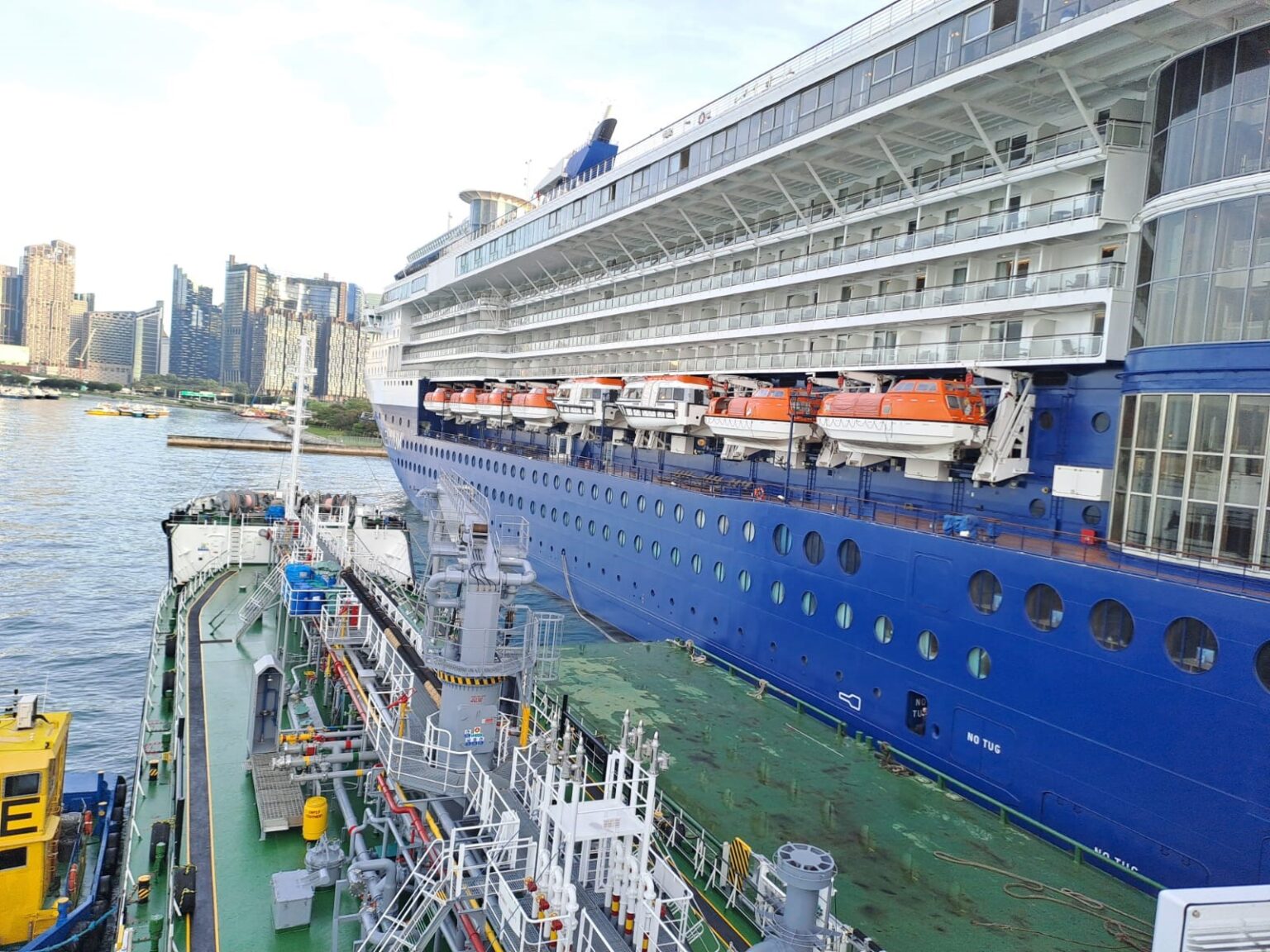Limited supply?
Biofuel can deliver significant GHG emissions reductions, but future uptake could be hampered by supply, says DNV

According to DNV’s latest white paper “Biofuels in Shipping”, key biofuels like FAME and HVO have great potential for reducing greenhouse gas (GHG) emissions and supporting compliance with maritime regulations, but their benefits to the industry could be constrained by limited supply in the future. With biofuel use expected to increase, the paper also highlights the importance of its safe introduction, outlining critical operational and technical considerations.
DNV notes that, in 2023, the maritime sector consumed just 0.7 million tonnes of oil equivalent (Mtoe) of liquid biofuels, representing a mere 0.6% of global liquid biofuel supply and 0.3% of shipping’s total energy use, highlighting the limited uptake of biofuels in shipping today compared to other sectors. Despite this, biofuel holds significant potential for reducing GHG emissions and achieving compliance with regulatory frameworks, such as CII, EU ETS, and FuelEU Maritime. To realise these benefits, the biofuels used must meet stringent sustainability and GHG savings requirements, verified through a Proof of Sustainability (PoS) or similar document.
Drawing on in-depth interviews and written surveys of eight biofuel suppliers and 12 shipping companies, the paper identified more than 60 locations which have already been proven to have carried out biofuel bunkering operations since 2015. The report estimates that the ports of Singapore and Rotterdam accounted for about half of all biofuels supply to shipping in 2023.
Knut Ørbeck-Nilssen, CEO Maritime at DNV said: “Biofuels present a promising decarbonisation option for shipowners, and it’s encouraging to see steady growth in the number of bunkering ports offering biofuels in recent years. However, the long-term future of the maritime biofuel market hinges on the availability of sustainable biomass at an affordable level, as well as competition with other sectors. Shipowners should, therefore, aim to explore energy efficiency measures and alternative fuels as part of their wider decarbonisation strategies, while utilising biofuels where they are available and affordable.”
The majority of biofuel consumption in shipping occurs through fuel blends, combining biofuels like FAME and HVO, the most established biofuels for maritime use, with conventional oil-based fuels. The DNV white paper contains an overview of the main technical and operational considerations for use of biofuel as a ‘drop-in’ fuel. This includes key recommendations to shipowners such as verifying fuel quality, compatibility with onboard systems, and monitoring performance.
Øyvind Sekkesæter, Consultant in Maritime Environmental Technology at DNV and lead author of Biofuels in Shipping said: “The technical compatibility of key marine biofuels like FAME and HVO varies from ship to ship, making it essential to assess each case individually. Doing so will ensure that the fuel specification and quality are compatible with their intended application, minimising the risk of damage to equipment and loss of power onboard the vessel.”
First delivery of renewable lower carbon HVO100 in Singapore
KPI OceanConnect, a major global provider of marine energy solutions and Neste, the world’s largest producer of renewable diesel and sustainable aviation fuel, carried out the first successful delivery of renewable diesel (HVO100) for the cruise industry in Singapore. The delivery of Neste MY Renewable Diesel™ took place in November 2024 at the Singapore Cruise Terminal, with the fuel sourced from Vopak Penjuru Terminal and transported to the cruise ship via the barge Maple, operated by Global Energy.
The HVO100 fuel is made from 100% renewable raw materials and is a direct replacement for fossil diesel, helping the industry meet its sustainability goals. The use of this renewable diesel can result in up to 90% greenhouse gas (GHG) emissions reduction over its lifecycle compared to fossil diesel. The fuel is a drop-in solution and is suitable for all diesel-powered engines without the need for additional investment or modification to engines or fuel infrastructure.
KPI OceanConnect collaborated with Neste to source the fuel and with Global Energy for operational agreements in Singapore waters.
Image Credit: KPI OceanConnect
27/02/2025
get
in touch

Constructive Media
Constructive Media
Hornbeam Suite
Mamhilad House
Mamhilad Park Estate
Pontypool
NP4 0HZ
Tel: 01495 239 962
Email: ibia@constructivemedia.co.uk

On behalf of:
IBIA London Office
Suite Lu.231
The Light Bulb
1 Filament Walk, Wandsworth
London, SW18 4GQ
United Kingdom
Tel: +44 (0) 20 3397 3850
Fax: +44 (0) 20 3397 3865
Email: ibia@ibia.net
Website: www.ibia.net

Emails
Publisher & Designer: Constructive Media
ibia@constructivemedia.co.uk
Editor: David Hughes
anderimar.news@googlemail.com
Project Manager: Alex Corboude
alex@worldbunkering.net
